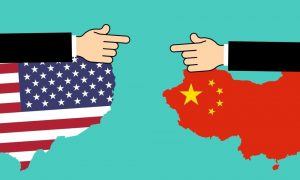Concerns about protecting critical supply chains and national security appear to be driving a bipartisan effort to create a new government body that would review and potentially block deals to invest in or share technologies with “foreign adversary” countries including China. The proposed legislation involves sectors and technologies such as semiconductors, large-capacity batteries, pharmaceuticals, rare-earth elements, biotechnology, artificial intelligence (AI), quantum computing, hypersonic weapons systems, financial technologies (fintech), and autonomous systems such as robots and drones. If passed, the measure would require U.S. entities and their affiliates to notify the federal government of any outbound investments or activities in the listed sectors in China or any other “country of concern.”
The legislation is intended to improve U.S. competitiveness with China through the creation of an interagency panel called the Committee on National Critical Capabilities, which would review and potentially stop transfers of technology and knowledge to China and other foreign adversaries. The agency home for the new committee is yet to be determined; candidates have included the U.S. Trade Representative and the Treasury Department. The latter already oversees the Committee on Foreign Investment in the U.S. (CFIUS), an interagency panel that can prevent foreign investments in U.S. assets or companies based on national-security grounds.
Lawmakers publicly supporting the bill include House Majority Leader Steny Hoyer (D-MD) and Senators Bob Casey (D-PA), John Cornyn (R-TX), and Mark Kelly (D-AZ). Opponents include Senators Rick Scott (R-FL) and Pat Toomey (R-PA). Some venture capitalists and business groups that represent technology and related sectors see the bill as an example of government overreach.
In addition to limiting transfers of knowledge and technology, the measure would provide funds for certain greenfield investments, joint ventures, and venture capital and private equity deals. If it passes, the bill could delay some transactions already in process or lead to deals being canceled. Some legal experts say the measure will only be effective if other nations follow suit; otherwise, U.S. companies may be put at a competitive disadvantage.






















